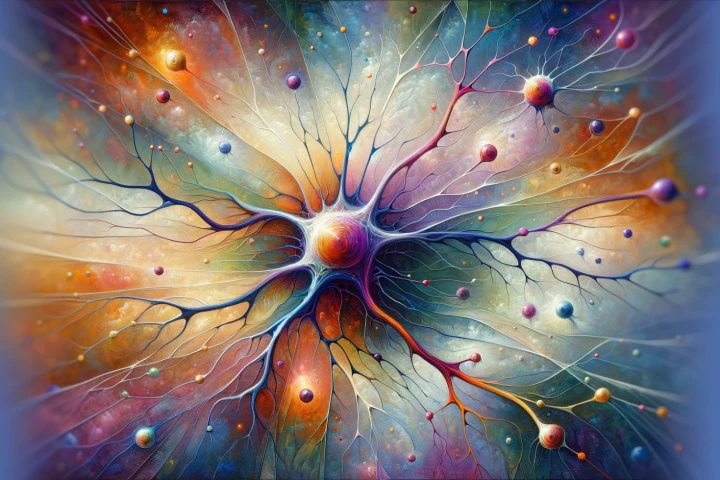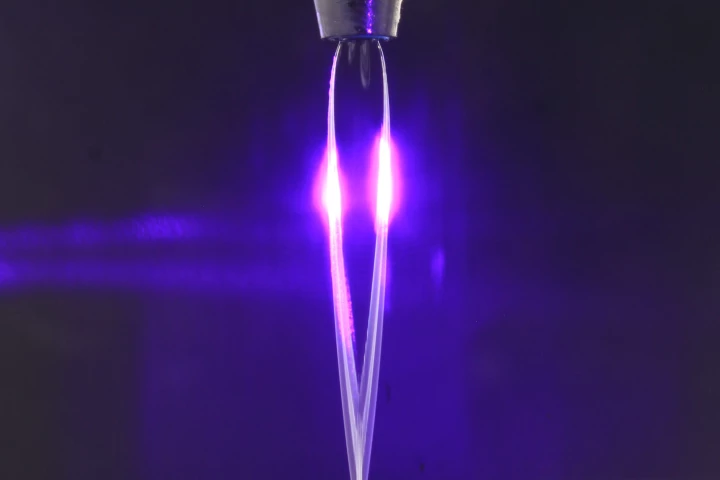Ruhr University Bochum
-
Damaged brain tissue can be re-grown using a new method that lets researchers guide stem cells into exactly the type of brain cells they need for a particular spot. They're targeting new treatments for stroke, traumatic brain injury and MS.
-
Water is usually something you’d want to keep away from electronic circuits, but engineers in Germany have now developed a new concept for water-based switches that are much faster than current semiconductor materials.
-
Scientists have developed a promising new tool for monitoring Parkinson's treatment described as a "fluorescent nanosensor paint," which glows brightly in the presence of dopamine to reveal its concentrations and spread in the brain.
-
German scientists have restored the ability to walk in mice that had been paralyzed by a complete spinal cord injury. The team created a “designer” signaling protein and injected it into the animals’ brains, stimulating nerve cells to regenerate.
-
Information can be encoded into many patterns, such as ones and zeroes for computers. A new proof of concept has been demonstrated to encode information into artificial molecules, which could enable programmable materials or new types of computers.
-
Science has told us that favoring our right or left hands could be traced back to our roots as thumb-sucking fetuses, where the brain directs such movements, but new research out of Germany is casting doubt on this thinking, suggesting that it all begins in the spinal cord instead.
-
A team of scientists from the Ruhr-Universität Bochum have compiled the largest astronomical image of all time.
-
A common ailment among stroke patients and the aging, treating a degenerative sense of touch has proven a complex task. A stimulation glove designed to improve tactile perception through small electrical pulses could provide a wearable solution that's unimposing enough for everyday use.
-
Quantum ComputingA significant step on the path to quantum computing has been taken by an international team of researchers who have succeeded in creating quantum bits within a semiconductor for the very first time.
-
Researchers have shown that transcranial magnetic stimulation (TMS) can be used to enable rats to learn more easily.









